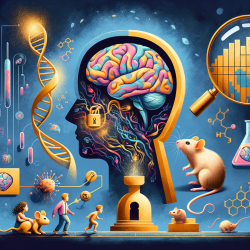Introduction
The comorbidity of substance use and mental illness, often referred to as co-occurring disorders (CODs), poses significant challenges to healthcare systems worldwide. This issue is particularly pronounced among Iranian women, who face unique cultural and structural barriers in accessing effective treatment. The research article "Inequalities in care for Iranian women suffering from the comorbidity of substance use and mental illness: The need for integrated treatment" sheds light on these challenges and underscores the need for integrated treatment approaches.
Understanding the Barriers
Iranian women with CODs encounter numerous barriers to effective care, including stigma, discrimination, and a lack of culturally specific services. These challenges are compounded by societal norms that discourage women from seeking help for substance use disorders. Additionally, economic constraints and inadequate insurance coverage further limit access to necessary treatments.
The Need for Integrated Treatment
Traditional treatment models that address mental illness and substance use separately have proven ineffective, often leading to high relapse rates. Integrated treatment approaches, which provide coordinated care for both conditions, have shown promise in improving outcomes for individuals with CODs. This approach involves a multidisciplinary team working collaboratively to deliver comprehensive services in a single location.
Implementing Integrated Treatment
For practitioners, implementing integrated treatment requires overcoming several personal and structural limitations. Key steps include:
- Establishing collaborative partnerships between substance use and mental health professionals.
- Providing education and training to enhance provider competency in delivering integrated care.
- Engaging patients and their families in the treatment process to foster understanding and support.
- Advocating for policy changes to improve access to integrated treatment services.
Encouraging Further Research
While the research highlights the potential benefits of integrated treatment, there is a need for further investigation into the specific barriers and needs of Iranian women with CODs. Practitioners are encouraged to engage in research efforts to develop culturally sensitive treatment protocols that address these unique challenges.
Conclusion
The article underscores the critical need for integrated treatment approaches to address the complex needs of Iranian women with co-occurring disorders. By recognizing and addressing the barriers to care, practitioners can improve outcomes and contribute to the growing body of literature on COD treatment. For more detailed insights, I encourage you to read the original research paper: Inequalities in care for Iranian women suffering from the comorbidity of substance use and mental illness: The need for integrated treatment.










